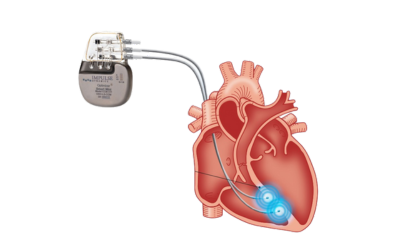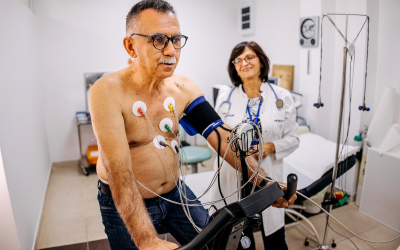
Heart Failure Treatment in Navi Mumbai
The human heart is a critical organ that pumps oxygenated blood to all the tissues throughout the body.
Its consistent performance maintains our brain function, our muscles and our body mechanisms in check.
Any interruption in this process can heavily influence the quality of life.
Based on research
Heart disease continues to be the leading cause of mortality worldwide, taking about 17.9 million lives annually.
Heart disease continues to be the leading cause of mortality worldwide, taking about 17.9 million lives annually.
Enquire Now
Dr. Rakesh Tirmale, a well-known cardiologist with Terna Hospital, states:
“Disturbingly, heart failure is no longer associated with the older population. Recent data have indicated an alarming trend towards increased heart failure among the younger population, owing mainly to lifestyle disorders, uncontrollable high blood pressure, and late diagnosis. Thankfully, advances in medical technology, drugs, and specialty cardiac care are recasting prospects for those diagnosed with heart failure.”
A committed heart hospital can be a lifesaver, providing personalized treatment and careful supervision. Leading the charge is Terna Hospital—a multi-specialty tertiary care hospital renowned for clinical excellence. Backed by skilled heart specialists and state-of-the-art diagnostic equipment, Terna Hospital provides top-notch heart failure treatments in Navi Mumbai.
Enquire Now
Understanding Heart Failure
Heart failure indicates that the heart cannot pump blood effectively enough to meet the body’s needs, it doesn’t mean the heart has stopped beating. This condition arises when the cardiac muscles become too weak or stiff to contract efficiently. Early diagnosis and access to timely heart failure treatment in nerul can help manage symptoms and improve quality of life.
he heart muscle may sustain damage from prolonged exposure to these risk factors, resulting in structural and functional abnormalities.

Left-sided heart failure
The most common type, this occurs when the left ventricle doesn’t pump blood effectively. It can lead to fluid build-up in the lungs, causing breathing difficulties.

Right-sided heart failure
This often follows left-sided failure. Blood backs up into the veins, leading to swelling in the legs and abdomen.

Systolic heart failure
The heart’s ability to contract and pump blood is reduced. It’s often associated with a lowered ejection fraction.

Diastolic heart failure
The heart contracts normally but is too stiff to relax and fill with blood properly. Ejection fraction may appear normal despite underlying dysfunction.
Diagnosis of Heart Failure
Physical Examination: Doctors assess symptoms like swelling, breathlessness, and irregular heartbeat while listening to heart and lung sounds.
Blood Tests: These include BNP (B-type natriuretic peptide) levels, kidney function, liver enzymes, and thyroid profile to detect strain or contributing conditions.
Electrocardiogram (ECG): Identifies rhythm abnormalities, past heart attacks, or structural changes.
Chest X-ray: Helps detect fluid in the lungs and assess the heart’s size.
Echocardiogram: A key diagnostic tool that uses ultrasound to evaluate the heart’s pumping efficiency and check for valve problems.
Cardiac MRI or CT Scan: Offers a detailed view of heart tissues, especially when complex structural insights are needed.
Stress Test: Measures how the heart performs under exertion, useful for detecting ischemia or arrhythmias.
Cardiac Catheterization: Allows direct visualization of coronary arteries and heart chambers to assess blockages or pressure levels.
Heart Failure Treatment Options in Terna Hospital

Medications
Diuretics, ACE* inhibitors, beta-blockers, and aldosterone antagonists help reduce symptoms and improve survival.

Lifestyle Management
Tailored advice on diet, salt restriction, exercise, and smoking cessation forms a critical part of treatment.

Implantable Devices
Devices like ICDs* and CRTs* help regulate heart rhythm and improve coordination of heartbeats.

Minimally Invasive Procedures
For patients with blocked arteries or valve issues, angioplasty and stent placement offer relief with minimal downtime.

Surgical Interventions
In severe cases, procedures like valve repair/replacement or bypass surgery may be required.

Cardiac Rehabilitation Programs
Personalized recovery plans focusing on physical and emotional well-being.
ICD, CRT & ACE.
Recovery and Follow-up
Follow-up visits to track progress
Medication adjustments according to changing needs
Regulation of diet and fluid intake
Organized physical activity as recommended
The Terna Cardiology Team advises:
“The path to heart failure recovery is one of consistency, medical supervision, and lifestyle modification. Long-term success with heart failure is contingent on ongoing commitment—on the part of the medical team and the patient. Recovery is a collaborative process founded on education, support, and watchfulness.”
So, what makes one hospital stand out over another?
Why Choose Terna Hospital for Heart Failure Treatment?
Selecting the appropriate facility can significantly contribute to the success of your recovery and treatment. Terna Hospital excels for many reasons:
Seasoned Cardiologists: Board-certified heart experts with extensive experience in diagnosing and treating complicated heart conditions.
24/7 Emergency Care: Round-the-clock cardiac emergency services provide immediate intervention at the time of need.
Advanced Imaging & Diagnostics: State-of-the-art equipment such as 3D echocardiography, cardiac MRI, and catheterization labs improve accuracy.
Detailed Treatment Plans: All patients are provided with a personal plan that merges medication, intervention, and rehab.
Minimally Invasive Procedures: Facility for catheter-based procedures allowing quicker recovery and shorter hospitalization.
Monitoring Post-Treatment: Follow-ups and teleconsultation enable monitoring and medication adjustments based on progress.
Cardiac Rehab: Guided programs to return patients to fitness, confidence, and a heart-healthy regimen.
Holistic Patient Care: From nutritional advice to mental wellbeing, patients enjoy complete care across the journey.
Frequently Asked Questions
How does heart failure differ from heart attack?
What should I avoid eating after heart failure?
How long will someone survive with heart failure?
Is heart failure preventable?
What is ejection fraction, and why is it important?
Disclaimer: The information shared in this content is for educational purposes only and not for promotional use.

